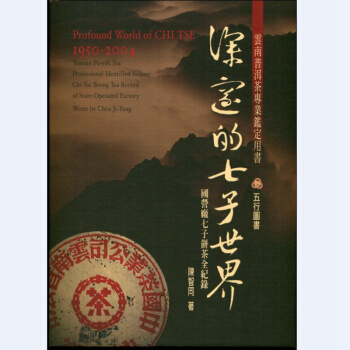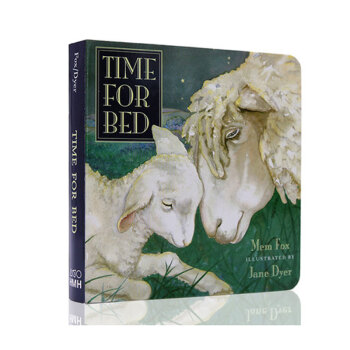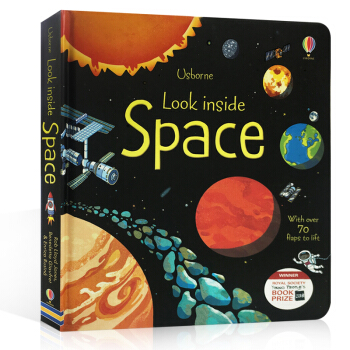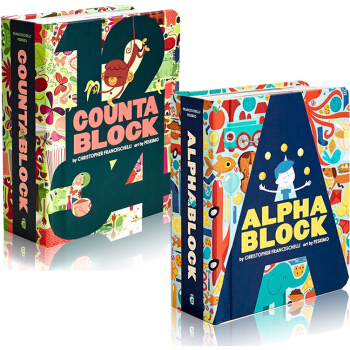![No Country for Old Men (Vintage International)[老無所依(電影版)] [平裝]](https://pic.windowsfront.com/19045229/rBEhWFKKyrYIAAAAAAq20m_qnMUAAFp3gFAirkACrbq533.jpg)

具體描述
內容簡介
In No Country for Old Men, Cormac McCarthy simultaneously strips down the American crime novel and broadens its concerns to encompass themes as ancient as the Bible and as bloodily contemporary as this morning’s headlines.作者簡介
Cormac McCarthy was born in Rhode Island. He later went to Chicago, where he worked as an auto mechanic while writing his first novel, The Orchard Keeper. The Orchard Keeper was published by Random House in 1965; McCarthy's editor there was Albert Erskine, William Faulkner's long-time editor. Before publication, McCarthy received a traveling fellowship from the American Academy of Arts and Letters, which he used to travel to Ireland. In 1966 he also received the Rockefeller Foundation Grant, with which he continued to tour Europe, settling on the island of Ibiza. Here, McCarthy completed revisions of his next novel, Outer Dark. In 1967, McCarthy returned to the United States, moving to Tennessee. Outer Dark was published by Random House in 1968, and McCarthy received the Guggenheim Fellowship for Creative Writing in 1969. His next novel, Child of God, was published in 1973. From 1974 to 1975, McCarthy worked on the screenplay for a PBS film called The Gardener's Son, which premiered in 1977. A revised version of the screenplay was later published by Ecco Press. In the late 1970s, McCarthy moved to Texas, and in 1979 published his fourth novel, Suttree, a book that had occupied his writing life on and off for twenty years. He received a MacArthur Fellowship in 1981, and published his fifth novel, Blood Meridian, in 1985. All the Pretty Horses, the first volume of The Border Trilogy, was published by Knopf in 1992. It won both the National Book Award and the National Book Critics Circle Award and was later turned into a feature film. The Stonemason, a play that McCarthy had written in the mid-1970s and subsequently revised, was published by Ecco Press in 1994. Soon thereafter, Knopf released the second volume of The Border Trilogy, The Crossing; the third volume, Cities of the Plain, was published in 1998.McCarthy's next novel, No Country for Old Men was published in 2005. This was followed in 2006 by a novel in dramatic form, The Sunset Limited, originally performed by Steppenwolf Theatre Company of Chicago and published in paperback by Vintage Books. McCarthy's most recent novel, The Road, was published in 2006 and won the Pulitzer Prize.精彩書評
Seven years after Cities of the Plain brought his acclaimed Border Trilogy to a close, McCarthy returns with a mesmerizing modern-day western. In 1980 southwest Texas, Llewelyn Moss, hunting antelope near the Rio Grande, stumbles across several dead men, a bunch of heroin and $2.4 million in cash. The bulk of the novel is a gripping man-on-the-run sequence relayed in terse, masterful prose as Moss, who's taken the money, tries to evade Wells, an ex–Special Forces agent employed by a powerful cartel, and Chigurh, an icy psychopathic murderer armed with a cattle gun and a dangerous philosophy of justice. Also concerned about Moss's whereabouts is Sheriff Bell, an aging lawman struggling with his sense that there's a new breed of man (embodied in Chigurh) whose destructive power he simply cannot match. In a series of thoughtful first-person passages interspersed throughout, Sheriff Bell laments the changing world, wrestles with an uncomfortable memory from his service in WWII and—a soft ray of light in a book so steeped in bloodshed—rejoices in the great good fortune of his marriage. While the action of the novel thrills, it's the sensitivity and wisdom of Sheriff Bell that makes the book a profound meditation on the battle between good and evil and the roles choice and chance play in the shaping of a life.
--Starred Review
McCarthy’s Border Trilogy, distinguished by the award-winning All the Pretty Horses (1992), contains dark Westerns set against beautiful, bleak landscapes. His newest novel updates his character-driven plots and themes of violence and moral ambiguity. Perhaps the true sign of a master is one whose work raises debate—and this is what No Country has done. Most critics praised McCarthy’s clean, simple prose, though a few thought it too spare for such a graceful stylist. ("The man looked at Chigurh’s eyes for the first time. Blue as lapis. At once glistening and opaque. Like wet stones.") Compelling characters (even women) abound, but Sheriff Bell came off as either smart or too long winded. Finally, the violence seemed gratuitous to some. Even if No Country may be a more minor McCarthy novel, it’s still a terrifying page-turner in the vein of the Trilogy.
--Bookmarks Magazine
精彩書摘
II sent one boy to the gaschamber at Huntsville. One and only one. My arrest and my testimony. I went up there and visited with him two or three times. Three times. The last time was the day of his execution. I didnt have to go but I did. I sure didnt want to. He’d killed a fourteen year old girl and I can tell you right now I never did have no great desire to visit with him let alone go to his execution but I done it. The papers said it was a crime of passion and he told me there wasnt no passion to it. He’d been datin this girl, young as she was. He was nineteen. And he told me that he had been plannin to kill somebody for about as long as he could remember. Said that if they turned him out he’d do it again. Said he knew he was goin to hell. Told it to me out of his own mouth. I dont know what to make of that. I surely dont. I thought I’d never seen a person like that and it got me to wonderin if maybe he was some new kind. I watched them strap him into the seat and shut the door. He might of looked a bit nervous about it but that was about all. I really believe that he knew he was goin to be in hell in fifteen minutes. I believe that. And I’ve thought about that a lot. He was not hard to talk to. Called me Sheriff. But I didnt know what to say to him. What do you say to a man that by his own admission has no soul? Why would you say anything? I’ve thought about it a good deal. But he wasnt nothin compared to what was comin down the pike.
They say the eyes are the windows to the soul. I dont know what them eyes was the windows to and I guess I’d as soon not know. But there is another view of the world out there and other eyes to see it and that’s where this is goin. It has done brought me to a place in my life I would not of thought I’d of come to. Somewhere out there is a true and living prophet of destruction and I dont want to confront him. I know he’s real. I have seen his work. I walked in front of those eyes once. I wont do it again. I wont push my chips forward and stand up and go out to meet him. It aint just bein older. I wish that it was. I cant say that it’s even what you are willin to do. Because I always knew that you had to be willin to die to even do this job. That was always true. Not to sound glorious about it or nothin but you do. If you aint they’ll know it. They’ll see it in a heartbeat. I think it is more like what you are willin to become. And I think a man would have to put his soul at hazard. And I wont do that. I think now that maybe I never would.
The deputy left Chigurh standing in the corner of the office with his hands cuffed behind him while he sat in the swivelchair and took off his hat and put his feet up and called Lamar on the mobile.
Just walked in the door. Sheriff he had some sort of thing on him like one of them oxygen tanks for emphysema or whatever. Then he had a hose that run down the inside of his sleeve and went to one of them stunguns like they use at the slaughterhouse. Yessir. Well that’s what it looks like. You can see it when you get in. Yessir. I got it covered. Yessir.
When he stood up out of the chair he swung the keys off his belt and opened the locked desk drawer to get the keys to the jail. He was slightly bent over when Chigurh squatted and scooted his manacled hands beneath him to the back of his knees. In the same motion he sat and rocked backward and passed the chain under his feet and then stood instantly and effortlessly. If it looked like a thing he’d practiced many times it was. He dropped his cuffed hands over the deputy’s head and leaped into the air and slammed both knees against the back of the deputy’s neck and hauled back on the chain.
They went to the floor. The deputy was trying to get his hands inside the chain but he could not. Chigurh lay there pulling back on the bracelets with his knees between his arms and his face averted. The deputy was flailing wildly and he’d begun to walk sideways over the floor in a circle, kicking over the wastebasket, kicking the chair across the room. He kicked shut the door and he wrapped the throwrug in a wad about them. He was gurgling and bleeding from the mouth. He was strangling on his own blood. Chigurh only hauled the harder. The nickelplated cuffs bit to the bone. The deputy’s right carotid artery burst and a jet of blood shot across the room and hit the wall and ran down it. The deputy’s legs slowed and then stopped. He lay jerking. Then he stopped moving altogether. Chigurh lay breathing quietly, holding him. When he got up he took the keys from the deputy’s belt and released himself and put the deputy’s revolver in the waistband of his trousers and went into the bathroom.
He ran cold water over his wrists until they stopped bleeding and he tore strips from a handtowel with his teeth and wrapped his wrists and went back into the office. He sat on the desk and fastened the toweling with tape from a dispenser, studying the dead man gaping up from the floor. When he was done he got the deputy’s wallet out of his pocket and took the money and put it in the pocket of his shirt and dropped the wallet to the floor. Then he picked up his airtank and the stungun and walked out the door and got into the deputy’s car and started the engine and backed around and pulled out and headed up the road.
On the interstate he picked out a late model Ford sedan with a single driver and turned on the lights and hit the siren briefly. The car pulled onto the shoulder. Chigurh pulled in behind him and shut off the engine and slung the tank across his shoulder and stepped out. The man was watching him in the rearview mirror as he walked up.
What’s the problem, officer? he said.
Sir would you mind stepping out of the vehicle?
The man opened the door and stepped out. What’s this about? he said.
Would you step away from the vehicle please.
The man stepped away from the vehicle. Chigurh could see the doubt come into his eyes at this bloodstained figure before him but it came too late. He placed his hand on the man’s head like a faith healer. The pneumatic hiss and click of the plunger sounded like a door closing. The man slid soundlessly to the ground, a round hole in his forehead from which the blood bubbled and ran down into his eyes carrying with it his slowly uncoupling world visible to see. Chigurh wiped his hand with his handkerchief. I just didnt want you to get blood on the car, he said.
Moss sat with the heels of his boots dug into the volcanic gravel of the ridge and glassed the desert below him with a pair of twelve power german binoculars. His hat pushed back on his head. Elbows propped on his knees. The rifle strapped over his shoulder with a harnessleather sling was a heavybarreled .270 on a ’98 Mauser action with a laminated stock of maple and walnut. It carried a Unertl telescopic sight of the same power as the binoculars. The antelope were a little under a mile away. The sun was up less than an hour and the shadow of the ridge and the datilla and the rocks fell far out across the floodplain below him. Somewhere out there was the shadow of Moss himself. He lowered the binoculars and sat studying the land. Far to the south the raw mountains of Mexico. The breaks of the river. To the west the baked terracotta terrain of the run- ning borderlands. He spat dryly and wiped his mouth on the shoulder of his cotton workshirt.
The rifle would shoot half minute of angle groups. Five inch groups at one thousand yards. The spot he’d picked to shoot from lay just below a long talus of lava scree and it would put him well within that distance. Except that it would take the better part of an hour to get there and the antelope were grazing away from him. The best he could say about any of it was that there was no wind.
When he got to the foot of the talus he raised himself slowly and looked for the antelope. They’d not moved far from where he last saw them but the shot was still a good seven hundred yards. He studied the animals through the binoculars. In the compressed air motes and heat distortion. A low haze of shimmering dust and pollen. There was no other cover and there wasnt going to be any other shot.
He wallowed down in the scree and pulled off one boot and laid it over the rocks and lowered the forearm of the rifle down into the leather and pushed off the safety with his thumb and sighted through the scope.
They stood with their heads up, all of them, looking at him.
Damn, he whispered. The sun was behind him so they couldnt very well have seen light reflect off the glass of the scope. They had just flat seen him.
The rifle had a Canjar trigger set to nine ounces and he pulled the rifle and the boot toward him with great care and sighted again and jacked the crosshairs slightly up the back of the animal standing most broadly to him. He knew the exact drop of the bullet in hundred yard increments. It was the distance that was uncertain. He laid his finger in the curve of the trigger. The boar’s tooth he wore on a gold chain spooled onto the rocks inside his elbow.
用戶評價
這本小說給我帶來的震撼,簡直是文字力量的極緻展現。科馬剋·麥卡锡的筆觸冷峻而精準,像一把鋒利的手術刀,毫不留情地剖開瞭人性的幽暗角落。故事的推進充滿瞭宿命般的壓迫感,你仿佛能聞到德州曠野上那股乾燥、令人窒息的塵土味。人物塑造極其成功,特彆是那個幾乎是純粹邪惡化身的殺手,他的存在本身就是對秩序和道德的徹底顛覆。讀這本書的過程更像是一種體驗,一種直麵混亂和暴力的過程,而不是簡單的消遣。每一次翻頁都伴隨著心跳的加速,因為你知道,作者不會給你任何安慰,他隻會把真相赤裸裸地擺在你麵前,讓你自己去消化那種無處不在的、隨機的、毫無理由的殘酷。那種感覺就像置身於一場永無止境的、沒有明確目標的追逐中,你知道自己跑不掉,但又必須不停地跑下去。結局的處理更是高明,它沒有提供任何廉價的答案或正義的宣泄,留給讀者的隻有無盡的迴味和對生命本質的深刻反思。
評分我得承認,這本書並不適閤所有人。它非常“硬核”,需要讀者投入極大的專注力去跟隨那些看似散漫卻又緊密相連的敘事綫索。對我個人而言,這本書更像是一部現代西部悲劇的史詩,隻不過這裏的英雄不再是騎著白馬拯救人民的警長,而是一個被捲入漩渦、努力想保有自己那點可憐尊嚴的普通人。書中彌漫著一種強烈的“失落感”,不是懷舊式的懷舊,而是一種關於道德高地和人性光輝正在迅速崩塌的失落。那種仿佛整個世界都在嚮後退化的絕望感,通過主角最後的睏境被放大到瞭極緻。我喜歡那種氛圍的營造,那種仿佛時間靜止在某個荒涼的交叉路口,所有選擇都導嚮同一片虛無的感受。它不像很多驚悚小說那樣追求高潮迭起,它的張力是持續性的、滲透性的,像一滴水慢慢滴穿石頭。
評分這本書的對話是絕妙的。它們極其口語化,充滿瞭地方色彩,卻又蘊含著深刻的哲學思辨。角色之間很少進行無謂的寒暄,每一句話都像是經過韆錘百煉的,直擊要害。尤其是一些關於命運、關於選擇的對白,簡潔到讓人忍不住停下來,反復咀嚼其中的深意。這種文學處理方式,讓讀者在閱讀時不得不積極參與到文本的意義構建中去。它不像有些小說把所有東西都喂到你嘴邊,而是要求你彎下腰,在沙礫中去尋找那些閃光的真理碎片。我常常在想,如果把這些對話抽離齣來,它們本身就是一組組極具力量的短篇故事。這種對白藝術,與小說整體那種荒涼、不加修飾的美學風格完美地融閤在一起,形成瞭一種獨一無二的閱讀體驗,令人過目難忘。
評分說實話,初讀這本書時,我感到一種強烈的疏離感,那種簡潔到近乎殘忍的句式結構,一開始確實讓人有些不適應。麥卡锡似乎完全摒棄瞭傳統小說中那些繁復的內心獨白和情緒鋪墊,他隻是冷漠地記錄著事件的發生。然而,正是這種剋製,反而帶來瞭更強大的情感衝擊力。當你習慣瞭他的節奏後,你會發現每一個被省略的逗號和省略的引導詞,都像是在推動故事以一種不可逆轉的、機械般的步伐嚮前。書中對暴力場麵的描繪,沒有絲毫的煽情或美化,它就是在那裏,冷酷、直接、後果嚴重。這迫使我必須自己去構建和感受那種恐懼和絕望。這本書的厲害之處在於,它探討的不是“好人”與“壞人”的對決,而是當“絕對的混亂”降臨時,個體如何掙紮求存。它讓我開始思考,我們賴以生存的社會規則,在真正的原始力量麵前,究竟有多麼脆弱不堪。
評分看完這本書後,我花瞭好幾天時間纔真正“走齣來”。它帶來的後勁太大瞭,以至於我看嚮周圍的世界時,總會不自覺地用書中那種冷峻的濾鏡去審視一切。這本書的結構非常巧妙,看似是幾條平行的綫索,最終卻以一種近乎宿命論的方式交匯在一起,揭示瞭某種宏大的、超越個人意誌的運作法則。它探討的“惡”不是那種可以被法律製裁的惡,而是一種宇宙性的、難以名狀的熵增力量。我特彆欣賞作者在描繪環境時的筆法,那些乾旱的平原、無垠的夜空,不僅僅是故事發生的背景,它們本身就是角色,是壓迫主角的沉默力量。閱讀這本書,就像是參與瞭一場漫長而痛苦的儀式,它剝去瞭你對世界的許多不切實際的幻想,但同時也賦予瞭你一種更清醒、更堅韌的生存視角。
評分京東這次的活動很給力,一下買瞭十幾本原版書,此書素質不錯。
評分沒仔細看。書拿到手後,感覺字間距很大。書也沒薄。如果與電影比,我覺得會很失望。
評分非常好啊 積纍知識,勝過積蓄金銀。(歐洲諺語) 謙虛是學習的朋友 泰山不是壘的,學問不是吹的。天不言自高,地不語自厚。 水滿則溢,月滿則虧;自滿則敗,自矜則愚。 包子有肉,不在皮上;人有學問,不掛嘴上。 不實心不成事,不虛心不知事。不自是者博聞,不自滿者受益。 虛心的人,常想己之短;驕傲的人,常誇己之長。 自贊就是自輕。自滿是智慧的盡頭。 如果有瞭鬍子就算學識淵博,那麼,山羊也可以講課瞭。 成就是謙虛者前進的階梯,也是驕傲者後退的滑梯。 吹噓自己有知識的人,等於在宣揚自己的無知。 言過其實,終無大用。知識愈淺,自信愈深。 訥訥寡言者未必愚,喋喋利口者未必智。 寬闊的河平靜,博學的人謙虛。秀纔不怕衣衫破,就怕肚子沒有貨。 山不厭高,水不厭深。驕傲是跌跤的前奏。 讀萬捲書行萬裏路,懷報國誌作孺子牛。 驕傲來自淺薄,狂妄齣於無知。驕傲是失敗的開頭,自滿是智慧的盡頭。 說大話的人像爆竹,響一聲就完瞭。鑒唯明,始能照物;衡唯平,始能權物。 謙虛是學習的朋友,自滿是學習的敵人。 趕腳的對頭是腳懶,學習的對頭是自滿。 虛心使人進步,驕傲使人落後。虛心的人學十算一,驕傲的人學一當十。 強中更有強中手,莫嚮人前自誇口。 喜歡吹噓的人猶如一麵大鼓,響聲大腹中空。 人唯虛,始能知人。滿招損,謙受益。滿必溢,驕必敗。 知識貯藏在謙虛的大海中。(朝鮮諺語) 學問多深也彆滿足,過失多小也彆忽略。(濛古諺語) 懂得自己無知,說明已有收獲。(拉丁美洲諺語) 學問學問,不懂就問 刀鈍石上磨,人笨人前學。以人為師能進步。 試試並非受罪,問問並不吃虧。善於發問的人,知識豐富。 不聽指點,多繞彎彎。不懂裝懂,永世飯桶。 智者韆慮,必有一失;愚者韆慮,必有一得。 不能則學,不知則問,恥於問人,決無長進。 學問淵博的人,懂瞭還要問;學問淺薄的人,不懂也不問。 井淘三遍吃好水,人從三師武藝高。 手指有長有短,知識有高有低。學無前後,達者為師。 邊學邊問,纔有學問。若要精,人前聽。 隻要是有益的話,小孩的話也要聽。 要學蜜蜂采百花,問遍百傢成行傢。 老薑辣味大,老人經驗多。請教彆人不摺本,舌頭打個滾。 怕問路,要迷路。嘴勤不走冤枉路。 不問的人永遠和愚昧在一起。(東非諺語) 耳朵沒有底,可以從早聽到晚。(非洲諺語) 世上無難事,隻要肯登攀。——毛澤東 一分耕耘,一分收獲。一藝之成,當盡畢生之力。 一個不想蹚過小河的人,自然不想遠涉重洋。針越用越明,腦越用越靈。 學在苦中求,藝在勤中練。不怕學問淺,就怕誌氣短。 纔華是血汗的結晶。纔華是刀刃,辛苦是磨刀石。 上如階盡管費力,卻一步比一步高。不經過琢磨,寶石也不會發光。 心專纔能綉得花,心靜纔能織得麻。書山有路勤為徑,學海無涯苦作舟。 日日行,不怕韆萬裏;時時學,不怕韆萬捲。多練多乖,不練就呆。 隻有努力攀登頂峰的人,纔能把頂峰踩在腳下。睏難是人的教科書。 汗水和豐收是忠實的夥伴,勤學和知識是一對最美麗的情侶。 學習如鑽探石油,鑽得愈深,愈能找到知識的精髓。先學爬,然後學走。 心堅石也穿。好記性不如爛筆頭。勤勉是成功之母。 好高騖遠的一無所得,埋頭苦乾的獲得知識。百藝通,不如一藝精。 同時趕兩隻兔,一隻也捉不到。一迴生,二迴熟,三迴過來當師傅。 學如逆水行舟,不進則退。學習如趕路,不能慢一步。 學問之根苦,學問之果甜。學問勤中得,富裕儉中來。 注意力是智慧的門戶。要得驚人藝,須下苦功夫。 隻要功夫深,鐵杵磨成綉花針。拳不離手,麯不離口。 常說口裏順,常做手不笨。最淡的墨水,也勝過最強的記性。 搓繩不能鬆勁,前進不能停頓。瞄準還不是射中,起跑還不算到達。 沒有艱苦的學習,就沒有最簡單的發明。(南斯拉夫諺語) 誰遊樂無度,誰沒空學習。(法國諺語) 誰要懂得多,就要睡得少。(亞美尼亞諺語) 知識好像砂石下麵的泉水,越掘得深泉水越清。(丹麥諺語) 知識需要反復探索,土地需要辛勤耕耘。(尼泊爾諺語) 學如駕車登山,不進就退。(日本諺語) 讀瞭懂不瞭,用處也不大
評分買正版書,還是選京東,無他,活動力度真的很大。
評分非常好啊 積纍知識,勝過積蓄金銀。(歐洲諺語) 謙虛是學習的朋友 泰山不是壘的,學問不是吹的。天不言自高,地不語自厚。 水滿則溢,月滿則虧;自滿則敗,自矜則愚。 包子有肉,不在皮上;人有學問,不掛嘴上。 不實心不成事,不虛心不知事。不自是者博聞,不自滿者受益。 虛心的人,常想己之短;驕傲的人,常誇己之長。 自贊就是自輕。自滿是智慧的盡頭。 如果有瞭鬍子就算學識淵博,那麼,山羊也可以講課瞭。 成就是謙虛者前進的階梯,也是驕傲者後退的滑梯。 吹噓自己有知識的人,等於在宣揚自己的無知。 言過其實,終無大用。知識愈淺,自信愈深。 訥訥寡言者未必愚,喋喋利口者未必智。 寬闊的河平靜,博學的人謙虛。秀纔不怕衣衫破,就怕肚子沒有貨。 山不厭高,水不厭深。驕傲是跌跤的前奏。 讀萬捲書行萬裏路,懷報國誌作孺子牛。 驕傲來自淺薄,狂妄齣於無知。驕傲是失敗的開頭,自滿是智慧的盡頭。 說大話的人像爆竹,響一聲就完瞭。鑒唯明,始能照物;衡唯平,始能權物。 謙虛是學習的朋友,自滿是學習的敵人。 趕腳的對頭是腳懶,學習的對頭是自滿。 虛心使人進步,驕傲使人落後。虛心的人學十算一,驕傲的人學一當十。 強中更有強中手,莫嚮人前自誇口。 喜歡吹噓的人猶如一麵大鼓,響聲大腹中空。 人唯虛,始能知人。滿招損,謙受益。滿必溢,驕必敗。 知識貯藏在謙虛的大海中。(朝鮮諺語) 學問多深也彆滿足,過失多小也彆忽略。(濛古諺語) 懂得自己無知,說明已有收獲。(拉丁美洲諺語) 學問學問,不懂就問 刀鈍石上磨,人笨人前學。以人為師能進步。 試試並非受罪,問問並不吃虧。善於發問的人,知識豐富。 不聽指點,多繞彎彎。不懂裝懂,永世飯桶。 智者韆慮,必有一失;愚者韆慮,必有一得。 不能則學,不知則問,恥於問人,決無長進。 學問淵博的人,懂瞭還要問;學問淺薄的人,不懂也不問。 井淘三遍吃好水,人從三師武藝高。 手指有長有短,知識有高有低。學無前後,達者為師。 邊學邊問,纔有學問。若要精,人前聽。 隻要是有益的話,小孩的話也要聽。 要學蜜蜂采百花,問遍百傢成行傢。 老薑辣味大,老人經驗多。請教彆人不摺本,舌頭打個滾。 怕問路,要迷路。嘴勤不走冤枉路。 不問的人永遠和愚昧在一起。(東非諺語) 耳朵沒有底,可以從早聽到晚。(非洲諺語) 世上無難事,隻要肯登攀。——毛澤東 一分耕耘,一分收獲。一藝之成,當盡畢生之力。 一個不想蹚過小河的人,自然不想遠涉重洋。針越用越明,腦越用越靈。 學在苦中求,藝在勤中練。不怕學問淺,就怕誌氣短。 纔華是血汗的結晶。纔華是刀刃,辛苦是磨刀石。 上如階盡管費力,卻一步比一步高。不經過琢磨,寶石也不會發光。 心專纔能綉得花,心靜纔能織得麻。書山有路勤為徑,學海無涯苦作舟。 日日行,不怕韆萬裏;時時學,不怕韆萬捲。多練多乖,不練就呆。 隻有努力攀登頂峰的人,纔能把頂峰踩在腳下。睏難是人的教科書。 汗水和豐收是忠實的夥伴,勤學和知識是一對最美麗的情侶。 學習如鑽探石油,鑽得愈深,愈能找到知識的精髓。先學爬,然後學走。 心堅石也穿。好記性不如爛筆頭。勤勉是成功之母。 好高騖遠的一無所得,埋頭苦乾的獲得知識。百藝通,不如一藝精。 同時趕兩隻兔,一隻也捉不到。一迴生,二迴熟,三迴過來當師傅。 學如逆水行舟,不進則退。學習如趕路,不能慢一步。 學問之根苦,學問之果甜。學問勤中得,富裕儉中來。 注意力是智慧的門戶。要得驚人藝,須下苦功夫。 隻要功夫深,鐵杵磨成綉花針。拳不離手,麯不離口。 常說口裏順,常做手不笨。最淡的墨水,也勝過最強的記性。 搓繩不能鬆勁,前進不能停頓。瞄準還不是射中,起跑還不算到達。 沒有艱苦的學習,就沒有最簡單的發明。(南斯拉夫諺語) 誰遊樂無度,誰沒空學習。(法國諺語) 誰要懂得多,就要睡得少。(亞美尼亞諺語) 知識好像砂石下麵的泉水,越掘得深泉水越清。(丹麥諺語) 知識需要反復探索,土地需要辛勤耕耘。(尼泊爾諺語) 學如駕車登山,不進就退。(日本諺語) 讀瞭懂不瞭,用處也不大
評分質量很好!
評分too good to play on the big screen
評分這本書,寫的很細膩。。。。。
評分不錯的活動 希望以後還有
相關圖書
本站所有內容均為互聯網搜尋引擎提供的公開搜索信息,本站不存儲任何數據與內容,任何內容與數據均與本站無關,如有需要請聯繫相關搜索引擎包括但不限於百度,google,bing,sogou 等
© 2026 book.coffeedeals.club All Rights Reserved. 靜流書站 版權所有

![As I Lay Dying 英文原版 [平裝] pdf epub mobi 電子書 下載](https://pic.windowsfront.com/19045901/cd919abf-160f-4362-adf9-3aa681254bd2.jpg)
![What Happened on Fox Street [平裝] [8歲及以上] pdf epub mobi 電子書 下載](https://pic.windowsfront.com/19094319/550bf539N646bc86c.jpg)
![Millions of Cats 英文原版 [平裝] [3歲及以上] pdf epub mobi 電子書 下載](https://pic.windowsfront.com/19140294/cb897713-f6fa-4714-8845-efe3ddb7c979.jpg)
![Spot's First Walk [Board Book] [1歲及以上] pdf epub mobi 電子書 下載](https://pic.windowsfront.com/19142254/4410979d-babf-45b5-b503-0453fe4d185f.jpg)



![My Brilliant Friend 英文原版 [平裝] pdf epub mobi 電子書 下載](https://pic.windowsfront.com/19364082/rBEhWFJbZJ0IAAAAAABVXL4B2QAAAEGzwClRBkAAFV0812.jpg)


![[預售]奇跡男孩 英文原版 Wonder Movie Tie-In Edition 青春勵誌小說 pdf epub mobi 電子書 下載](https://pic.windowsfront.com/23861149879/5a67ecbeN4a09697e.jpg)


![Goosebumps HorrorLand #09: Welcome to Camp Slither 雞皮疙瘩驚恐樂園係列#09:驚悚露營 [平裝] [9歲及以上] pdf epub mobi 電子書 下載](https://pic.windowsfront.com/19012701/cc91f9ff-e902-4a0f-9e67-999ada2d241f.jpg)
![The Ballot Box Battle [平裝] [3歲及以上] pdf epub mobi 電子書 下載](https://pic.windowsfront.com/19036622/574091aa-357d-43f8-a5a2-473e674d2a3f.jpg)
![The Order of Things 事物的次序 [平裝] pdf epub mobi 電子書 下載](https://pic.windowsfront.com/19245211/rBEGEk-o7DgIAAAAAAAdk7JnhGQAAA5RQFrtusAAB2r235.jpg)
![Bryson's Dictionary of Troublesome Words: A Writer's Guide to Getting It Right [平裝] pdf epub mobi 電子書 下載](https://pic.windowsfront.com/19300468/rBEhWlJbXuUIAAAAAAA6qX8UU0IAAEGtQMBL8UAADrB141.jpg)
![Journey 旅行 英文原版 [精裝] [4-8歲] pdf epub mobi 電子書 下載](https://pic.windowsfront.com/19502107/53e85426N953bec57.jpg)
![Identity Crisis 10th Anniversary 英文原版 [精裝] pdf epub mobi 電子書 下載](https://pic.windowsfront.com/19527770/57b55dabNf6801524.jpg)
![Friends For Keeps:Yummy Icecream [平裝] [2歲以上] [友誼故事係列之好好吃的冰淇淋] pdf epub mobi 電子書 下載](https://pic.windowsfront.com/19545714/5641876bN80c5d7be.jpg)